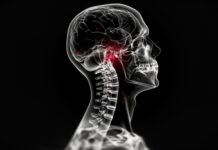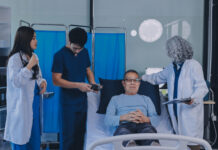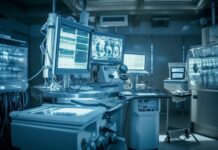Researchers at National Jewish Health, in collaboration with other experts, have completed the first study comparing lung macrophages across multiple lung injury models. The findings challenge the previous belief that “pro-fibrotic” macrophages alone are responsible for causing fibrosis, suggesting that these cells are not as closely linked to fibrosis as once thought. This discovery opens new avenues for research aimed at understanding how macrophage programming can aid or hinder lung repair.
Published in JCI Insight, the study explored the role of macrophages—immune cells crucial for lung protection and repair—in both healthy recovery and fibrosis. While macrophages are vital for initiating and resolving lung injuries, they also contribute to the development of fibrosis, a scarring condition in the lungs. The mechanisms that distinguish macrophages involved in healthy repair from those that promote fibrosis remain unclear.
Dr. William Janssen, MD, section head of Critical Care Medicine at National Jewish Health and senior co-author, stated, “We now know the role of macrophages has been misunderstood. This research helps advance the goal of the pulmonary community to harness macrophages in the pursuit of achieving lung repair.”
In the study, researchers compared macrophage activity in two disease models—one known to result in healthy repair and the other leading to fibrosis. They found that macrophages expressing Gpnmb genes, previously considered “pro-fibrotic,” were present in both injury models, suggesting that these cells are not solely responsible for fibrosis.
Further analysis revealed these macrophages in lung tissue samples from various diseases, including asthma and COVID-19, with varying recovery outcomes. This raised questions about what causes dysfunctional healing and fibrosis in some lung diseases but not others.
Dr. Alexandra McCubbrey, Ph.D., a researcher at National Jewish Health and senior co-author, commented, “When you take a step back and look at clinical data differently, you start to see something new.”
As reported by medicalxpress, the study also showed that the lung’s microenvironment influences macrophage behavior, including subtle changes in protein expression and macrophage survival. In the fibrosis model, these environmental factors triggered pathways that led to less effective repair.
With the identification of a macrophage population present in all lung injury types, as well as pathways that contribute to both fibrosis and healthy repair, the researchers aim to continue exploring what triggers these differences in macrophage behavior. They also plan to investigate whether it’s possible to redirect macrophages involved in fibrosis to promote healing instead.
Dr. Janssen emphasized, “Our goal is to figure out how to rebuild the injured lung,” with future research focused on understanding macrophage programming and whether these cells can be harnessed to encourage healthy repair even in fibrotic diseases.
























